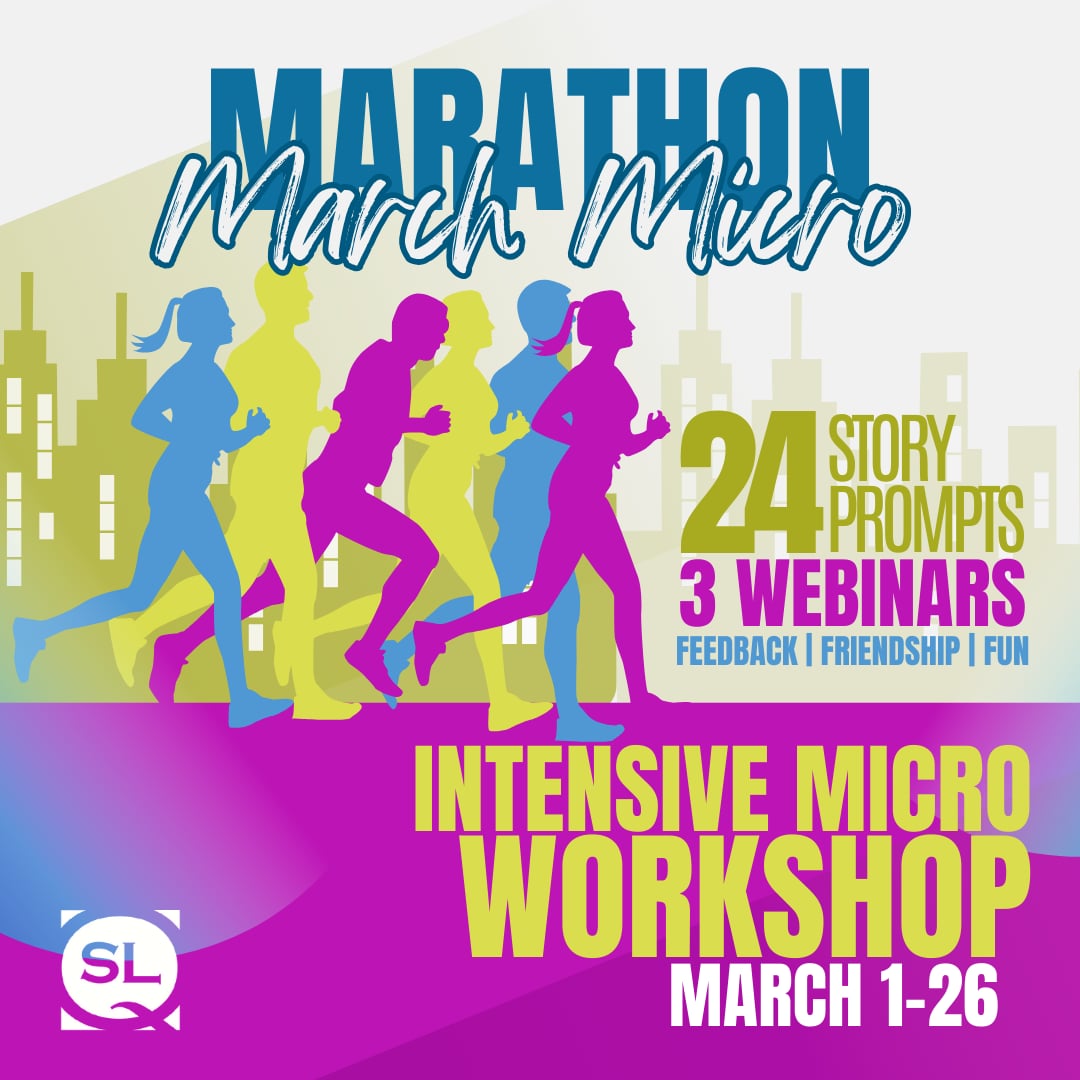What is your favorite thing about writing (or reading) flash fiction?
Oh there is so much I absolutely love about flash fiction. The economy and precision, the way it moves and expands. A successful piece of very short fiction will take root and bloom and keep opening up inside the reader. There is an unshakeable BIGNESS to compressed forms that’s irresistible. On a personal level: flash saved my life about a decade ago, and got me back to writing fiction regularly again after many years away from the page. I never would have had a book or a disciplined writing practice, or readers, or a meaningful literary community — without it.
I know we were both waiting for fall and for our children to return to school, so we could each return to the page. I’m curious about your writing rhythm. What does a typical (or ideal) writing day look like for you?
The critical voices in my head are deafening, so I have to wake before them. Unfortunately, this means a very slim window and an ungodly hour. It’s a taken me a long time to accept this as my rhythm but so it is. I’m up between 4:30-5:00. Coffee, morning pages, which may take the shape of anything from good old fashion head clearing to dream recall or it may be where I grapple with a problem I’m dealing with in the longer projects I’m working on. I write longhand and have rotten handwriting and can’t see for shit, so usually the word vomit remains word vomit without looking back but occasionally there are sections I mark that I’ll try to decode and type up later. I take a break around 6:15 am to make lunches/breakfast — wake kids, get them to the subway. In an ideal universe I go for a run if I’m not rushing to work, and return to my desk around 10. By then, the critical mind is often awake. The critic is essential, and I defer to this voice when I’m editing or refining or working through student manuscripts, of course. But when the critic sounds off too soon in the generative process it’s like chewing my own tail. Writing longhand in a notebook — I have all these different notebooks for different projects — can help keep that voice at bay (the critic doesn’t show up when he can’t read the handwriting) and I recommend this if you are at all like me and struggle with this, particularly for drafting and pre-drafting, when you are just playing around. It’s so important, for me, at least, to at least trick myself into a state of play before a thing takes shape. So longhand. Eventually, I get to the screen. I eat a lot of crap and drink a lot of tea and tell myself I suck. A LOT. Afternoons, I teach. Then, kids, dinner, family. Evenings I devote to them.
You’re currently working on a novel, which I’m so excited to read and I don’t even know what it’s about yet. Can you tell us about the process of moving from writing short stories to a writing a novel?
I’ve spent the last number of years in one long project and now I’m in another long project and it’s hard for me to talk about either. Both are alive within me. I wanted to try writing a novel because it goes against every natural muscle I have, to the extent that I have any natural muscle at all. For the longest time I thought narratively in this one encapsulated way, like I’d get an idea and I could already feel the pace of it, and see the ending, the way out. That’s another thing I love about short form: how gratifying it can be, when it comes out how you hoped, and you can whittle it down and polish it up and send it out and hopefully it finds a home and someone reads your story and connects with it, and it shifts them in the slightest way, and then you’ve done your job. Everyone has their sweet spot in length and for a spell I could churn (I shouldn’t say churn, as I’m a snail, but relatively speaking, for me) out these 1500 word stories. But — and this is my weakness — I could start to feel the rhythm unfold. I could feel this sense of overdetermination take over my writing. Familiarity is one thing, ownership of voice another, but we constantly have to fight the complacency that can strangle not only our ideas but our development, our ability to grow as writers, as people. To keep startling and unsettling ourselves. Or at least I do. So I stopped writing flash — stopped writing stories, pretty much, in order to push myself out of the dull groove I’d found myself in. And without getting too deep into it — although, I don’t think people talk about this enough, so if anyone ever wants to talk with me about this, I’m here for it, DM me — it’s been a tough transition with lots of lessons and setbacks along the way but the process has taught me so much. Certain impulses that work — or have worked for me — in flash — do not translate well over 300 pages. A lot of the things I once viewed as strength became weakness. For example, I tend to gravitate toward restraint in language and moment, but this constant pulling back on drama may not be a gratifying experience for the reader over the long haul. One friend said I suffer from “story-itis,” which I kind of love, because it’s true, however painful. So I am learning how to lean into drama, push story, ratchet tension and crank volume to a level I’m less accustomed to in my quieter writing. Anyway. There are so many lessons. I’ve learned I have no patience and I have to be patient — with my writing, with scene and character and development — with this whole process. Also: to embrace uncertainty. Of course, everything is uncertain. There is only ever uncertainty. But what a leap of faith to spend years knitting this lumpy, lopsided sweater no one may ever wear. To love it, anyway, for what it is. To arrive at peace with that. Most of all, I’ve learned to embrace these worlds I’m living in, these impossibly fraught characters and all of their warts, to wrestle with their dark and their light with humility and honesty and intention and compassion and love.
What kind of story would you love to find in the queue this week?
I just want an honest story. Save the fireworks. Do not set off my bullshit meter. I’m tired of performativity. Tell me the same story but tell it in a way so it can be told no other way but your own. Make me feel, make me worry, make me care. Make me want to re-read and re-read. Change my temperature, shift my view, expand my heart. Get out of the story’s way and deliver it close. Closer. Right there. See how it lives and breathes. I won’t forget that.


